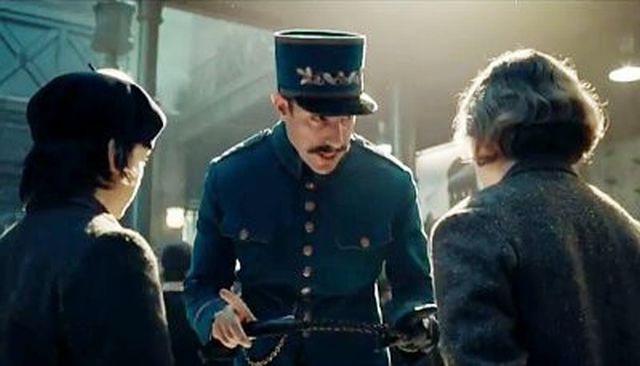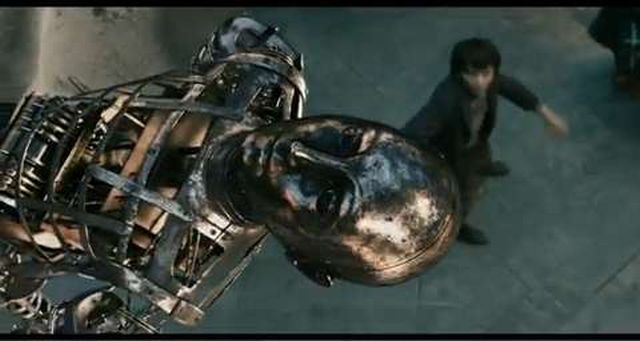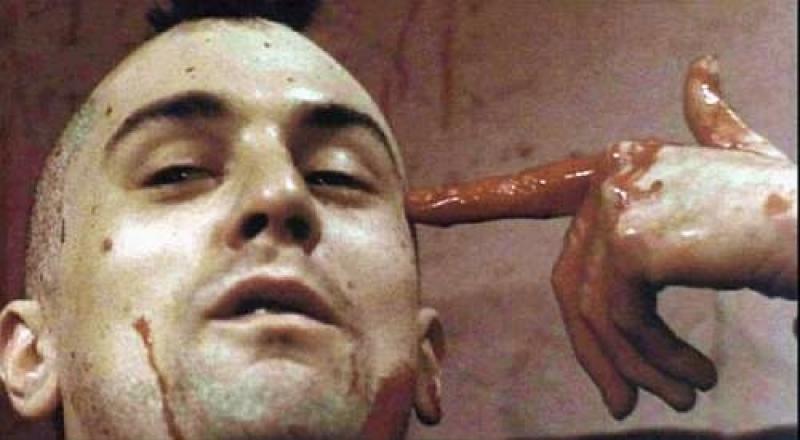The Shrek series is resurrected once again for this amiable, action-packed - if less than purr-fect - 3D spin-off, featuring everyone’s favourite diminutive swashbuckler. If the franchise was a feline it would be running out of lives (and good will) fast, but fortunately this prequel leaves the magical land of Far Far Away, well, far, far away - instead setting its story amidst the red dust and diabolical double-crossing of a spaghetti western.

Another Earth begins, like many more reliable but less ambitious films, with a life-changing event. A young astrophysicist is involved in a collision. Climbing unharmed from her vehicle, she finds a woman and child dead by her hand. Four years later she emerges from prison and attempts to make contact with her surviving victim, who turns out to be an eminent composer. Her nerve fails, but still she finds herself worming her path into his world.

Idiotically buried by a release which sees it appearing on just one screen nationally, Kenneth Lonergan’s triumphant follow-up to his Oscar-nominated debut You Can Count on Me (2000) is, without a scintilla of a doubt, one of the finest films of 2011. Rich, resonant and with a meticulous approach to characterisation, it captivates, convinces and challenges.

In his home country, the release of the latest film by Nanni Moretti is always an event, all the more so in the case of We Have a Pope – a bittersweet psychological comedy with tinges of tragedy about a cardinal who is elected to the throne of St Peter, has a panic attack, and does a runner leaving the Catholic Church in crisis and the world media with a bonzer news story. It arrives a full five years after his last outing, Il caimano.

As gentle and emotionally affecting as they come, Argentinian director Pablo Giorgelli’s feature debut is the tenderly told story of the burgeoning bond between a migrant mother and a slightly grizzled, taciturn trucker, which gingerly moots the possibility of romance. It’s a wise and disarming tale of hope and unspoken sadness which, though you’ll barely notice it doing so, will work its way right under your skin.

It's tempting to say that Martin Scorsese's first so-called "family film" works like clockwork, except that the movie possesses considerably more soul than that statement suggests. What's more, it would help to be a clan of thoroughgoing cinéastes to tap entirely into its charms, as a director steeped in the history of his chosen medium takes us backwards in time towards the very origins of the art form he so reveres. Kids may love the sweep and scope of the visuals, many of them involving timepieces that whir and tick and hum, but Hugo at heart is an extended act of homage toward the miracle that is celluloid itself. Those on Scorsese's palpably appreciative wavelength are sure to return his affection in kind.
For much of its first hour or so, some may wonder whether this is a Scorsese film at all, given the absence of the raw aggression and rage that have marked out so many of his best films. As the camera of the great cinematographer Robert Richardson swoops around and about a Parisian railway station some 70 years ago, an extravagant landscape emerges packed with mechanised instruments, gears and watch faces of all shapes and sizes. The human element includes Richard Griffiths and Frances de la Tour as putative lovers along with a maniacal station inspector (Sacha Baron Cohen, pictured below with the film's two young leads) whose black Doberman keeps shooting out of the screen toward us as befits a film shot, rapturously, in 3D: all more Spielberg, surely, than Scorsese?
 There's a whiff of Spielberg, too, in the presence of an orphaned boy driving the narrative, and not only because Hugo star Asa Butterfield at times looks disconcertingly like the hero, Tintin, at the heart of that other 3D venture of late (well, minus the quiff). With the height and breadth of the Gare Montparnasse as his playground, Butterfield's shining-eyed Hugo sets about on a mission to put right a broken automaton that was a favourite object of the boy's late father - that role played in a notably warm cameo by Jude Law, who brings real feeling to scant amounts of screen time.
There's a whiff of Spielberg, too, in the presence of an orphaned boy driving the narrative, and not only because Hugo star Asa Butterfield at times looks disconcertingly like the hero, Tintin, at the heart of that other 3D venture of late (well, minus the quiff). With the height and breadth of the Gare Montparnasse as his playground, Butterfield's shining-eyed Hugo sets about on a mission to put right a broken automaton that was a favourite object of the boy's late father - that role played in a notably warm cameo by Jude Law, who brings real feeling to scant amounts of screen time.
Hugo's quest involves locating the key to a heart-shaped lock, a task that leads him to a bookish girl called Isabelle (Chloë Grace Moretz, giving the only stiff performance of the film) who uses Cyrano-ish words like "panache" and has a crank of a guardian (Ben Kingsley), a toy store proprietor whose apparent identity gives no sense of his one-time renown. At snarling odds with humankind (and, we discover, with his own past), Isabelle's Pappa Georges needs nothing more than to have his own heart reopened, which Hugo and Isabelle are eventually able to do. Who, in fact, is this ageing scold? No less a legendary figure than Georges Méliès, the celluloid visionary (1861-1938) without whose genius such devoted practitioners and scholars of the form as Scorsese would have had no career.
It's at this point that Hugo goes its own singular way, Scorsese increasingly limiting the comic freneticism of an eyebrow-heavy Baron Cohen in hot pursuit of his pre-teen prey so as to give time to an extended history lesson about the movies, complete with a recreation of the Lumière brothers' 1897 Arrival of a Train at La Ciotat that is seen to inform both Hugo's sleeping and waking selves. Effecting his own rehabilitation of the life and work of Méliès, the latter now largely lost to us, Scorsese moves beyond the academicism embodied on screen by Broadway actor Michael Stuhlbarg's professorial Tabard to proffer a story of rebirth and renewal that works on multiple levels. Even better, the emotions are informed at every turn by visuals that suggest a dizzying hybrid of Harold Lloyd (whose silent 1923 classic Safety Last is specifically referenced), Chaplin's Modern Times and the Sophie Treadwell play Machinal.
 The scenes devoted to Méliès's artistry further the screenwriter John Logan's interest in the artistic process as evidenced previously in his London and Broadway hit play, Red, while at the same time reminding us of Scorsese's championing over time of the work of Pressburger and Powell and of his crusading work as a film preservationist - which is to say that Hugo ricochets well beyond the parameters of its narrative, as one might expect from the talents involved. The automaton (pictured above, as Butterfield looks up in awe) is a red herring given a venture that is deeply humane.
The scenes devoted to Méliès's artistry further the screenwriter John Logan's interest in the artistic process as evidenced previously in his London and Broadway hit play, Red, while at the same time reminding us of Scorsese's championing over time of the work of Pressburger and Powell and of his crusading work as a film preservationist - which is to say that Hugo ricochets well beyond the parameters of its narrative, as one might expect from the talents involved. The automaton (pictured above, as Butterfield looks up in awe) is a red herring given a venture that is deeply humane.
You could argue that the film sometimes gets a bit gushy ("come and dream with me" goes an exhortation revisited in varying soundbites during the last reel or two), rather in the manner of those sonorous voiceovers we hear at places like the Oscars, at which point the tuxedoed assemblage turns all dewy-eyed. But there's nothing remotely faux about a movie that eats, sleeps and breathes the cinema and invites viewers to do the same. How will such passions square with a filmgoing community today that is more acclimatised to the likes of (God forbid) rival 3D entry Immortals? Well, Scorsese was eight when he saw The Red Shoes, and look what happened there. Or, to co-opt the language of Hugo, when it comes to this film's possible imprint upon its audience, one can only dream.
MORE MARTIN SCORSESE ON THEARTSDESK
 Taxi Driver (1976). Talking to me? Scorsese's classic starring Robert De Niro (pictured) is restored and re-released on its 35th anniversary
Taxi Driver (1976). Talking to me? Scorsese's classic starring Robert De Niro (pictured) is restored and re-released on its 35th anniversary
Shutter Island (2010). Not a blinder: Leonardo DiCaprio in Martin Scorsese's feverish paranoid thriller
George Harrison - Living in the Material World (2011). Martin Scorsese's epic documentary of the Quiet One
The Wolf of Wall Street (2014). Con brio: Scorsese and DiCaprio tell of the rise and fall of a broker
Arena: The 50 Year Argument (2014). A warmly engaging film about the 'New York Review of Books' might have been more than a birthday love-in
Vinyl (2016). Scorsese and Jagger's series is prone to warping, skipping and scratches
Silence (2016). Scorsese's latest is a mammoth, more ponderous than profound
Overleaf: Watch the trailer for Hugo

John Carpenter's original The Thing from 1982 had punch, pace, shocks, horror, dramatic tension and Kurt Russell in the lead. It also had a great intro, with its scenes of an apparently blameless and photogenic husky being pursued across Antarctica by gunmen in a helicopter. How we cheered when the animal was saved. How we shouldn't have.

There are times when one marvels that some films ever get the green light; whether it's difficult subject matter, unknown leads or first-time directors, they each have their own, different hurdles to cross with studios more interested in the bottom line than creating art. But with a film such as The Big Year, one wonders that it ever got made for different reasons - for despite its A-list stars, a director with a successful track record and an unusual (maybe even unique) storyline, it really is one that should never have got beyond the conference-call stage.

It’s always struck me as an odd sort of desire: to go to see a movie in which you know someone is going to die a long and painful death, while someone else – or maybe a whole gaggle of people – stand and watch, shedding tears and beating breasts. Of all genres, the “terminal illness movie”, if we can call it that, seems altogether perverse.

My Week With Marilyn depicts the supposedly sweet dalliance between Marilyn Monroe – an actress in over her head played by an actress, Michelle Williams, reaching her peak – and eager-beaver gofer Colin Clark (Eddie Redmayne) during the fraught Pinewood production of Laurence Olivier’s The Prince and the Showgirl in 1956.

